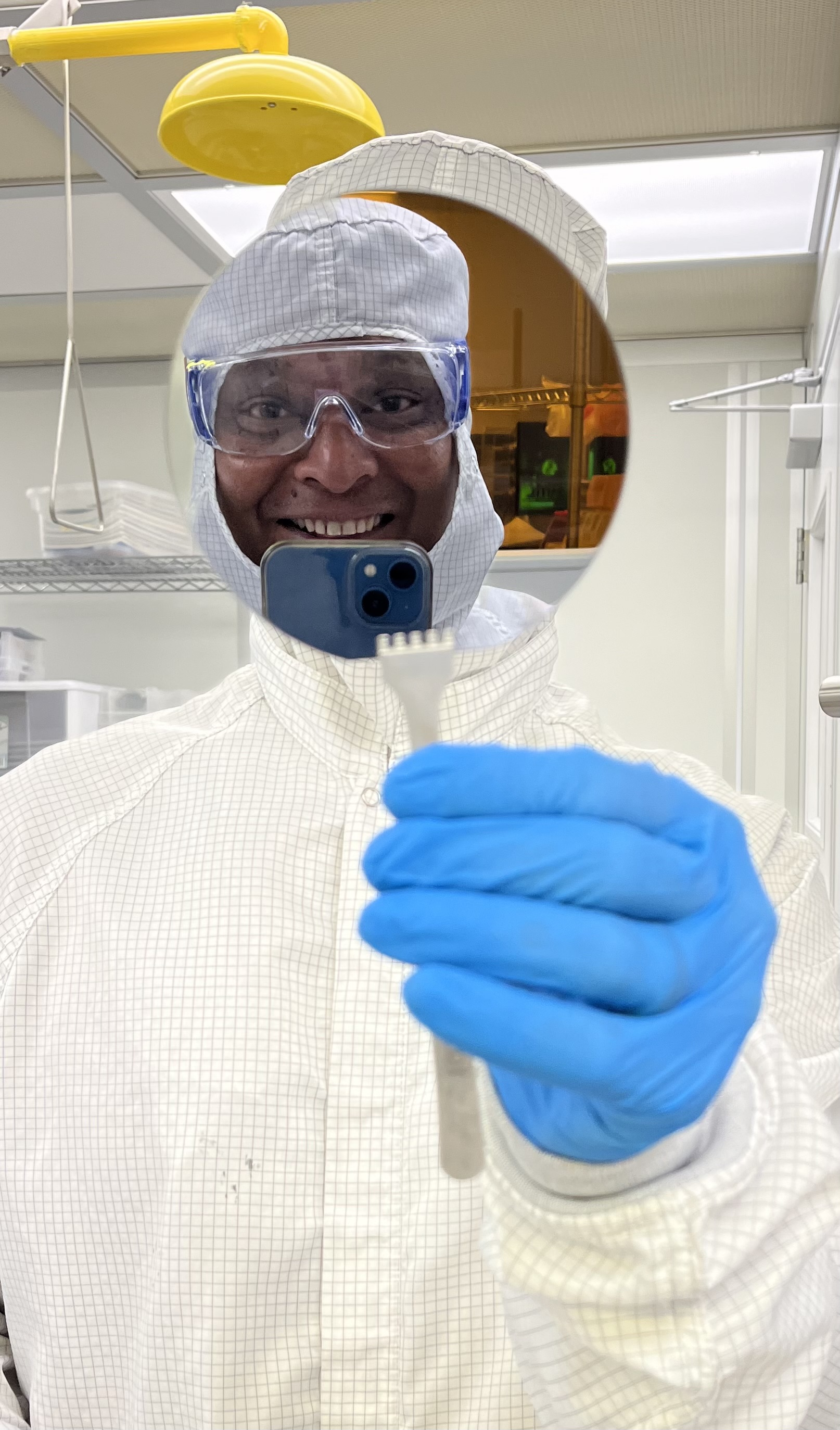Meet the Team: Bipin Lade

The National Center for Earth and Environmental Nanotechnology (NanoEarth) continues the Meet the Team Series by highlighting Bipin Lade, Ph.D.
Lade currently serves as a NanoEarth Research Associate. He has a rich academic background, as he obtained a Master of Science in Molecular Biology from the University of Hertfordshire in Hatfield, England and a Doctor of Philosophy in Biotechnology from Sant Gadge Baba Amravati University in Amravati, India. Lade’s Ph.D. program investigated pathogen control by the synthesis of metallic nanoparticles using plant extracts.
This extensive academic background led Lade to an Assistant Professor position at Rajiv Gandhi Biotechnology Center, RTM Nagpur University, India, where he enjoyed mentoring students to obtain their research goals. His experiences guided him to a Postdoctoral Research Associate position at Texas A&M University, in College Station, Texas (TAMU). At TAMU, Lade focused on sustainable food packaging. He studied the preparation of antibacterial biodegradable films made from sodium alginate and zein, incorporating pelargonic acid (PA) and eugenol (EUG) emulsions for active food packaging.
Curious about sustainability in nanotechnology, Lade made the move to Virginia Tech (VT) in Blacksburg, Virginia. Lade was recently promoted to Research Associate with NanoEarth, after joining the team in 2022 as a Postdoctoral Associate. His research, with NanoEarth Deputy Director and VT Associate Professor of Nanoscience Marc Michel, Ph.D., focuses on removing microplastics and nanoplastics from water using food grade polymeric solutions. This led to a collaboration with the license office to protect and commercialize the intellectual property (IP) at the VT office.



In his role, Lade also supports nanomaterial characterization for user projects. He uses dynamic light scattering (DLS), the scanning electron microscope (SEM), and Raman spectroscopy for the characterization of microplastics. He also develops best practices for sampling, preparing, and analyzing nanomaterials from environmental systems. These samples are often straight from the field and not analyzed in clean rooms.
Recently, Lade shared these best practices with other National Nanotechnology Coordinated Infrastructure (NNCI) personnel, through the NNCI Staff Exchange. He toured labs at the Montana Nanotechnology Facility (MONT) and Nanotechnology Collaborative Infrastructure Southwest (NCI-SW), while networking and discussing new collaboration efforts. He enjoyed learning about best practices for microplastic analysis using micro-FTIR and pyrolysis GCMS at NCI-SW and semiconductor research at MONT.

Lade is a pivotal leader of NanoEarth outreach, on and off campus. He has led NISE NanoDays Kits demonstrations and discussed nanotechnology at numerous outreach events including VT’s Hokie for a Day, VT Science Festival, Montgomery-Floyd Regional Library System, VT College of Science High School Teacher Professional Development Workshop, and NanoEarth tours. He even helped a middle school student with their science fair project at the Nanoscale Characterization and Fabrication Laboratory (NCFL) and served as a review panelist for the Institute for Critical Technology and Applied Science (ICTAS) Diversity and Inclusion Seed Investment program.




Hands-on NanoDays activities: To understand the properties of nano fabric, heat transfer, Nanosand, and ferrofluid in everyday items, where students explored how nanoscale features affect macroscale properties.





During his time at NanoEarth, Lade has pushed his boundaries and expanded his network. In 2023, he participated in the NNCI Plenty of Beauty at the Bottom Image Contest. Two of his images won at the local NanoEarth level and were submitted to the national voting contest: “Micro-Nano Angry Birds” won the NanoEarth Most Whimsical Category and “Nanoplastic Volcano Ball” won the NanoEarth Most Unique Capability. In 2024, he participated in the NNCI Nanotechnology Entrepreneurship Challenge (NTEC). He investigated “Sustainable Flocculation Process of Microplastics and Nanoplastics in Water Induced by Food-Grade Hydrophobic Polymer”.


Lade’s overall career goals include continuous learning and innovation. His short-term goal is to promote environmental sustainability by developing eco-friendly solutions for mitigating micro and nano plastic pollution. While not researching, he makes family his main priority. He enjoys meditating, listening to bollywood music, watching movies, and traveling with his wife and kids on the weekends. He especially enjoys coloring pictures and creating new drawings with his son.
Lade’s advice to students and young researchers includes doing what you enjoy. All of the experiences in school and life will be useful now and later. Do not be afraid to ask questions and seek out those who can offer advice and suggestions. In a fast-paced world, this easily saves time!








